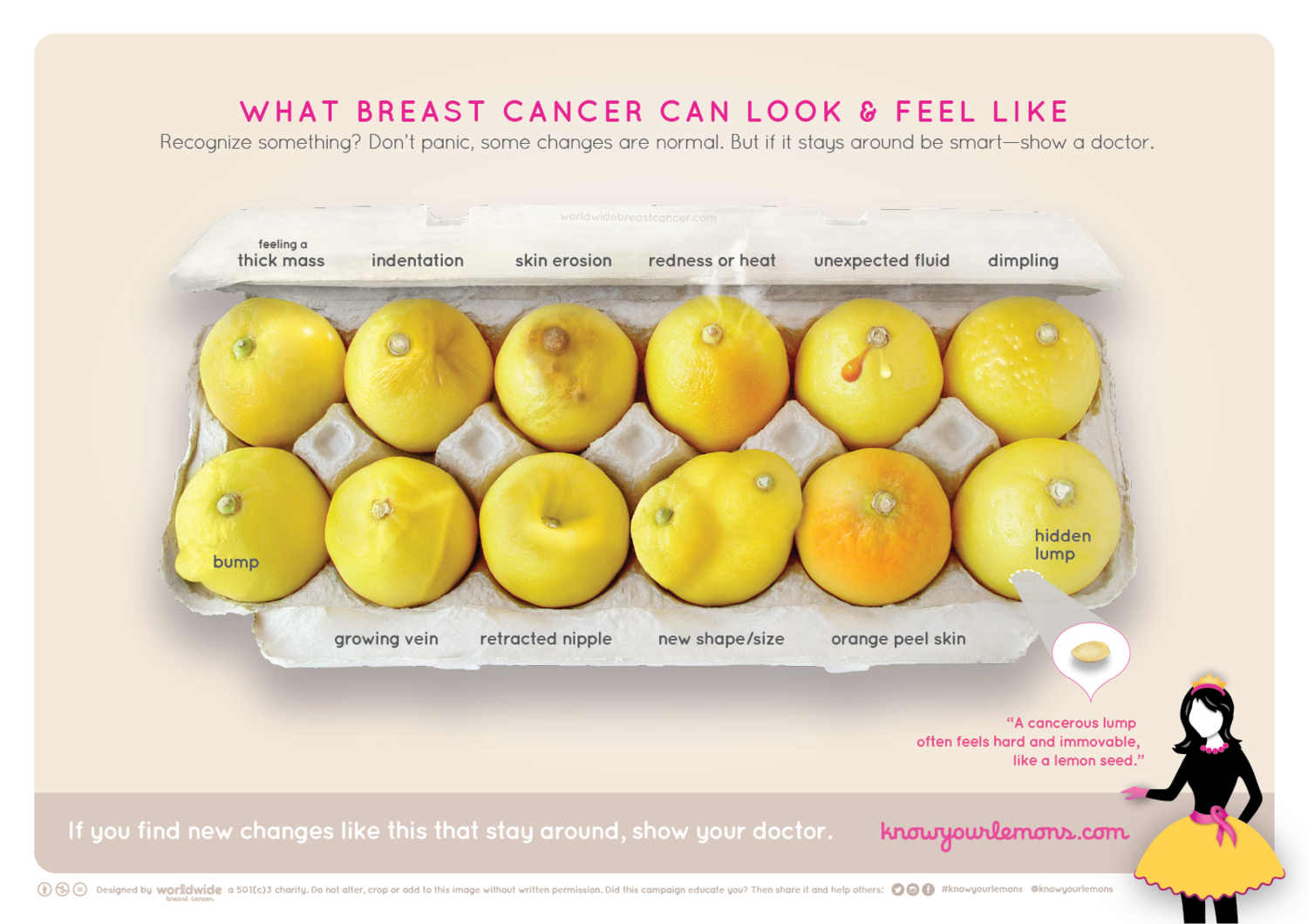A Carton of Lemons Offers a Simple Lesson About Breast Cancer

Many of you might be familiar with the carton of lemons image already. It is from the www.worldwidebreastcancer.org campaign, “Know Your Lemons.” Each lemon appears in a way in which breast cancer can look and feel. Everyone knows about feeling a lump but most do not know about the other possible symptoms – skin indentations or sores, redness, heat, dimpling, growing veins, orange peel skin or a new retracted nipple. It is important to know that while a lumpy mass is the most common sign of breast cancer, some symptoms can be seen rather than felt.
Monthly Breast Self-Exams Can Help
Breast Exams should be performed monthly. Think of a self-exam as a casual way to know what is normal for you. The best time to check is a few days after your period ends when your breasts are the least sensitive. Start by looking in the mirror with your arms at your side. Then raise your arms over your head watching the breast skin for any changes. Follow the visual exam with a physical exam. A cancerous lump is hard – like the end of your elbow. I often tell patients it is like feeling a peanut in tapioca pudding. If you find a lump or a change in your breasts you should see your doctor.
We offer a *free* self-exam reminder service – go to www.PinkBreastCenter.com/Resources and sign up for the free breast self-exam reminders.
Most importantly, a mammogram can detect a cancer long before it can be felt. Usually women are unable to feel cancer until it is the size of a walnut (2 cm). Mammograms can find cancers when they are smaller than a peanut (3-5mm). One of the most important keys to long term survival from Breast Cancer is finding it early which means while it’s still small. All women should have a mammogram yearly from the age of 40. At this time all insurances pay in full for basic annual screening mammograms. 3D mammogram coverage is variable and depends on your given insurance plan. Breast ultrasounds are covered but can be part of your deductible.
So, know your lemons! They can teach you a lot about breast cancer. Be breast aware. It only takes a minute to check for a bad seed. Schedule your annual mammogram today!